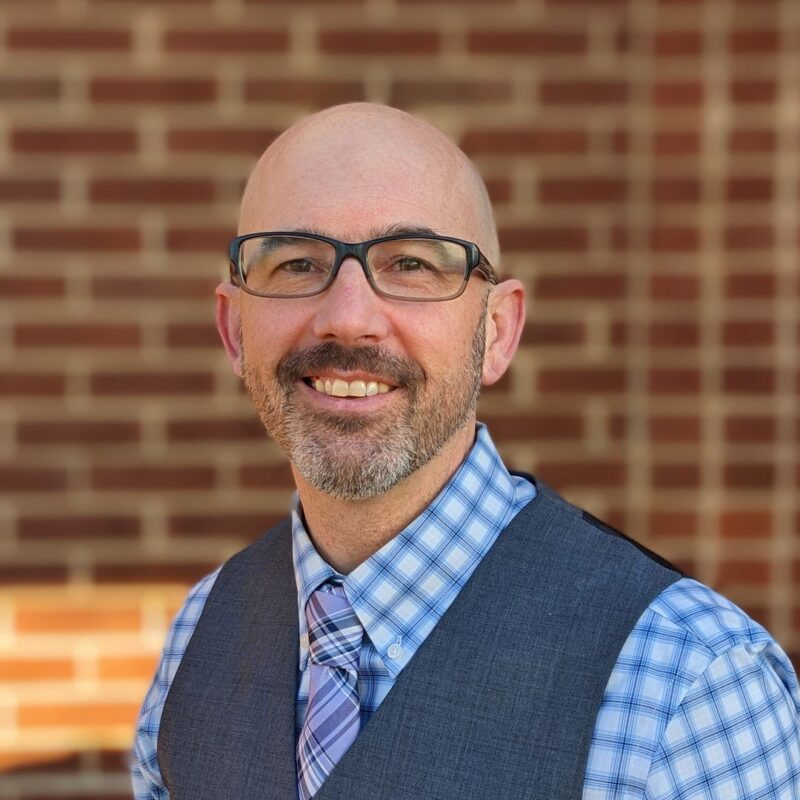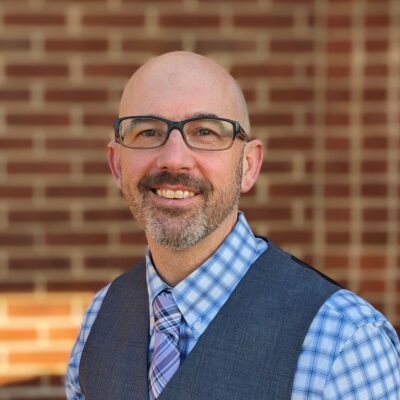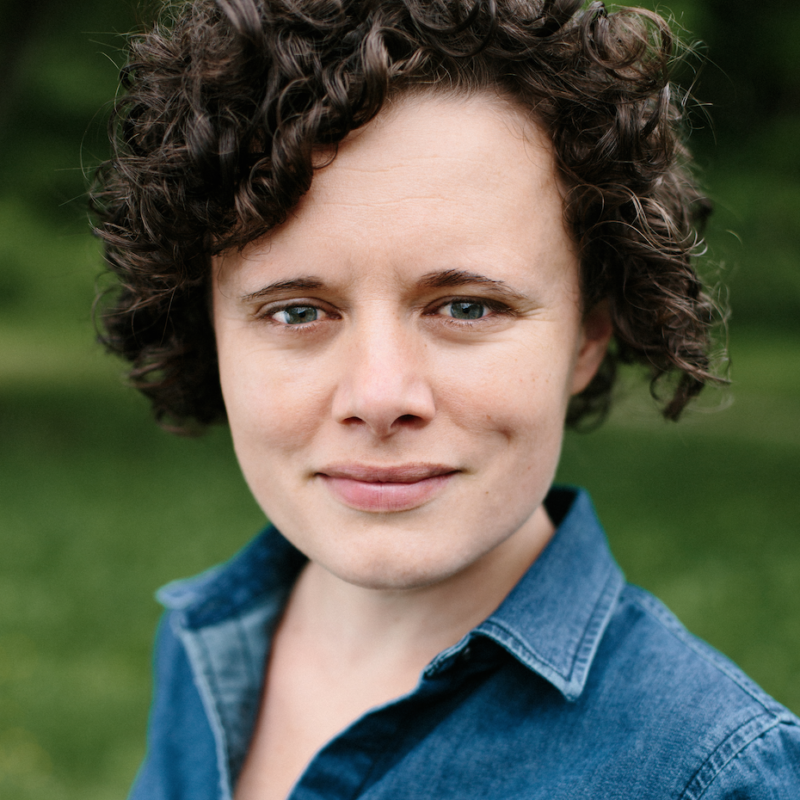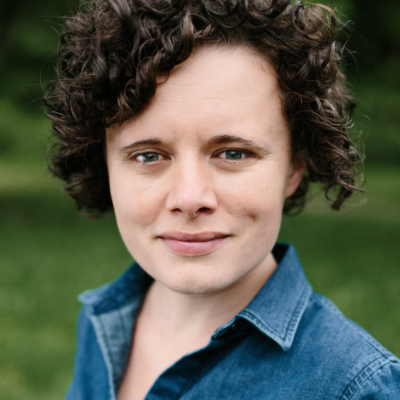Midway through the morning of September 21, Double H Farm co-owner Jean Rinaldi was mowing the grass around her house when she spotted Virginia state and Nelson County police pull into her driveway. “I said, ‘What’s happening?’” she recalls. “I thought somebody might have gotten hurt.” Instead, she was told she was under arrest. “I just started to shake and I don’t think I’ve stopped shaking yet.”
Meanwhile, Rinaldi’s partner and the founder of Double H, Richard Bean, was being handcuffed and placed in a police cruiser outside their tin barn. “I was wearing my apron,” he says. “How apropos.”

This little piggy must go to market: The state department of agriculture says Double H hogs can’t be slaughtered on the farm—they have to be shipped to far away facilities.
|
As police and two enforcement officers from the Virginia Department of Agriculture and Consumer Services (VDACS) poured out of their vehicles, Bean was told they had a warrant for his arrest and a search warrant. “It was very dramatic,” he says. “They search you for weapons, they frisk you like on TV. Everybody’s got flak jackets on.”
After “denaturing” some of their pork (by pouring bleach on it) and confiscating their house computer, the officers then took them to Nelson County Courthouse where they were fingerprinted and charged in both Nelson and Charlottesville, serving them with 11 misdemeanors each for the crime of selling uninspected meat. Bean also got one felony count of selling uninspected meat with the intent to defraud. Released on their own recognizance, they returned home to ponder the latest twist in a saga with authorities that first began in 2006.

Jean Rinaldi was mowing the lawn and Richard Bean was in the barn when police stormed their farm, arresting and hauling them off to jail for selling their own pork.
|
Eight years earlier, then 54-year-old Bean moved to Virginia from Massachusetts where he had been a butcher for much of his life, and two years later his partner Rinaldi joined him. The two settled almost an hour south of Charlottesville in Lovingston, where they built the small farm they would call Double H (short for the Home of Healthy Foods). Within a few years and with only a little help, they were operating a food enterprise that featured produce, poultry (a few hundred chickens) and pigs (80 to 110 at any given time). In addition to supplying various local restaurants, the two also offered their wares at the local farmers’ markets in Nelson and Charlottesville and soon found their business thriving as part of the emerging “Buy Local, Buy Fresh” movement. That movement, as reported on repeatedly in C-VILLE June 20, 2006, August 1, 2006, May 15, May 22 and July 10, puts an emphasis on locally grown and produced foods and is not without controversy, thanks to the attention of state and federal agriculture agents.
It was also at the farmers’ markets, the Charlottesville City Market specifically, that Double H began to run afoul of VDACS, according to the Double H farmers. In May 2006, Bean and Rinaldi were manning their booth at the market when they were approached by an enforcement officer named F.C. Lamneck (Lamneck did not return calls for this article). He informed them that in order to sell their pork products, they were required to have their pigs slaughtered at a state-inspected slaughterhouse. While they had initially done so, in the last few years Bean had dispensed with the practice after he had equipped his farm with the tools he needed to kill the pigs and cut them himself. “There’s quite a cost and it’s so much more feasible when we do it here,” Bean says. “We have the facilities, and I’ve been cutting meat all my adult life.”
In Virginia, as across much of the nation, it is illegal to sell meat products that have not been slaughtered in a state-inspected facility. Shortly after Lamneck’s visit, Double H received a certified letter warning that they were in violation of the section of Virginia code that forbids the unlawful selling of “articles which are capable of use as human food.” (Lamneck also made a surprise visit to their farm, but according to Rinaldi, she asked him to leave as Bean was not present at the time, and he complied.)

Rinaldi and Bean were featured in an August 2006 C-VILLE cover story on the importance of upscale produce to the local food movement.
|
“These rules were written as an answer to the abuses of the big operators, but they’ve been enforced without appreciation for the inherent smallness and transparency of neighbor doing business with neighbor,” says Joel Salatin, the owner of Polyface Farms and a vocal proponent of local farming. “They’ve been handed down to a small farm situation.”
“Let’s say we do a pig a week—that’s 50 a year,” Bean says. “Smithfield does 50 a minute. Do we need to be under the same rules?”
Despite the warning, Double H continued to kill their own hogs for financial reasons, though the farmers briefly tried to comply with the law in 2007 by taking the pigs to a licensed facility in Lynchburg. However, when ownership of that facility changed hands in March of this year, Bean says his calls to schedule appointments weren’t returned.
The two were faced with a dilemma. There are few inspected facilities licensed to kill livestock in Virginia, and the nearest to their Lovingston home is in Fauquier County, a two-and-a-half hour drive in their 20-year-old pick-up. So Bean resumed killing the hogs and processing them himself.
Trouble started again on July 14 when Lamneck stopped by the City Market and followed up August 18, requesting updated invoices. “Of course I didn’t have any because I hadn’t gotten anything killed,” Bean recalls. “I knew the game was up.”
All along, Bean and Rinaldi say they were under the impression that as long as their hogs were slaughtered at a proper site, the actual processing of the meat—cutting up pork chops, making sausage—could be done on their farm. On September 8, Lamneck returned to the market to notify them that their processing areas had to be inspected for them to sell at the City Market, also raising issues regarding a label placed on their meat that says “certified organic” under the name of their farm. Lamneck also put a federally detained sticker on their cooler of pork, and arranged to meet them the following Wednesday at their farm to make sure they had disposed of it. Four days later, the officer arrived to find his entrance barred by the Double H owners who, after consulting lawyers, had decided not to allow the officer on the property. That night, they were served with four Nelson County summonses each.
At the same time, Lamneck was trawling the streets of Charlottesville, visiting a number of area restaurants that Double H supplies. The Ivy Inn was one such spot.

In July, C-VILLE ran this cover story on the growing local food movement, in which Double H has played a key role.
|
“[Lamneck] basically just informed me that Double H has been distributing some products they shouldn’t be,” says owner Angelo Vandelopous. “He wanted me to understand the laws regarding inspection, so if I was presented with something to be properly informed that I was buying something that was illegal.” Another local restaurant, Shebeen, purchased a roast pig from Double H in early September, but before they could serve it, VDACS enforcement officers entered their premises and doused it with bleach, according to Bean. The restaurant could not be reached for comment.
Their avid pursuit has led to suspicions that VDACS has targeted Double H to make an example of the small farmer.
“It’s not up to us to decide what the law is,” says Elaine Lidholm, a VDACS spokesperson. “We don’t make the law, we just enforce it. Right now the law does apply to everyone across the board.”
“If you’re asking if they’ve been treated in a discriminatory way, I would say no,” says Salatin. “VDACS is trying to hold them to the letter of the law. If you want my feeling on if it’s a good law, that’s another whole discussion. The most critical issue here is that all of Richard’s and Jean’s customers who buy their food because it’s better than any place else are now being denied the freedom of food choice to decide to patronize their excellent products. That should raise the hackles of every red-blooded American.”
One of those is Paul Kingston, a UVA professor of sociology who has been named interim associate dean for arts, humanities and social sciences. “I told [Bean and Rinaldi] the first time I ate one of their pork chops that I considered it life transforming,” he says. “I’ve been on a quest to find the ultimate pork chop and I found it.”
While the Double H owners wait for their court dates (October 10 in Nelson, October 25 in Charlottesville), they have complied with state regulations and have recently started to take their pigs to the Fauquier facility. When they returned to pick up the cut and processed meat, they were stunned.
“We almost choked when we got there,” says Jean. The bill was over $1,000, and taking account of the hours on the road and the gas, they estimate an overall cost of over $300 per hog. “If we do this 10 times a year, that’s $12,000 that we’re taking a hit on,” Jean says. “We’re going to have to raise all of our prices across the board.” The Double H owners have since raised their prices by a dollar.
“It totally destroys the entrepreneurial spirit in the production community to access their local market,” says Salatin. “That’s what these operations are for, to beat the local entrepreneur into submission so that most of them never see the light of day. That keeps everybody like good little boys and girls running down to the supermarket instead of the farmer’s market.”
For more on this subject read this week’s Restaurantarama.
C-VILLE welcomes news tips from readers. Send them to news@c-ville.com.





